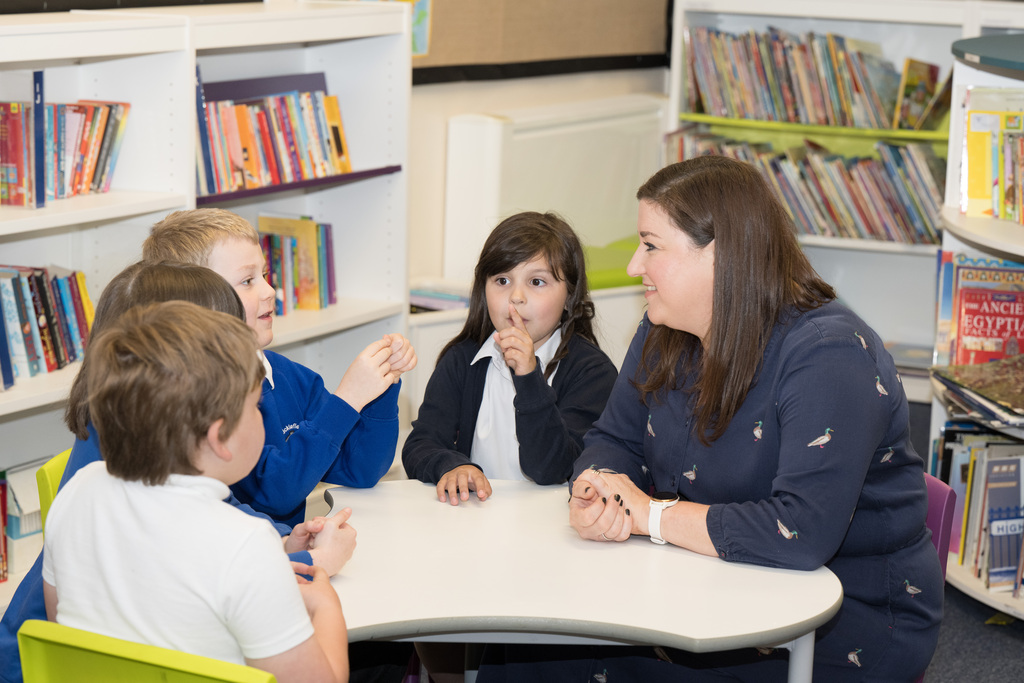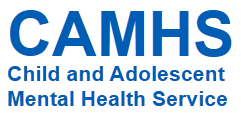Safeguarding
 Our safeguarding team is:
Our safeguarding team is:
- Mrs Emma Cook – Designated Safeguarding Lead
- Mrs Caroline Loring – Deputy Designated Safeguarding Lead
- Mrs Clare Fell - Deputy Designated
- Safeguarding Lead
- Mrs Barbara Rhodes - Governor Responsible for Safeguarding. Barbara can be contacted via the school email office@micklefieldceprimary.co.uk
If you have any safeguarding concerns whilst visiting our school please report to the school office and a member of staff will alert one of our Designated Safeguarding Leads.
This school is committed to safeguarding and promoting the wellbeing of all children, and expects our staff, volunteers and visitors to share this commitment
Safeguarding Policies
The health and safety of all our children is of paramount importance. Parents and carers send their children to school each day with the expectation that school provides a secure environment in which their children can flourish. We therefore take every practicable measure to ensure that this expectation becomes reality.
We have Safeguarding policies and procedures in place which can be accessed via the school or this website [insert internal link to policies page]
Everyone in our community has the responsibility to act on any concerns that they may have about a child’s well-being and safety.
We pride ourselves in the effort we make to develop a nurturing and caring ethos and relationship with our families.
Occasionally we do have a worry or query about some aspect of a child’s life. This might be because a child is upset and has disclosed something, we have seen a mark or bruise on a child or because a family member has approached us for help. We are legally obliged to pass on any concerns we have about a child’s safety and wellbeing to the appropriate authority. We never do this anonymously or behind parents’ backs unless circumstances call for this (if we felt that informing the parent would possibly put the child at greater risk of harm), if we have a concern about your child we would normally discuss our intentions with you. If we are approached by social services or any other safeguarding body, we are obliged to work with them to support any issues they have been asked to investigate and it would be up to them as the lead professionals to inform you about their concerns.
We are here to educate, help, support, nurture and safeguard your child. If you have any more questions relating to safeguarding in our school, please contact Mirs Cook or Mrs Loring.
guidance for parents
Guidance for Parents
We all want our children to live in a safe and loving environment so that they can grow up to become happy, confident adults. You will already know that your children can be vulnerable to risks both inside and outside the home, and will have taken steps to protect them so they can grow, learn and develop to their fullest potential.
Each school shares a purpose with parents to keep children safe from harm and to have their welfare promoted. If a parent is concerned about a child or young person they are encouraged to contact the school to share their concern with either the Designated Safeguarding Lead or Headteacher.
Do you have safeguarding concerns about one of our pupils?
Are you worried about their welfare?
We take safeguarding very seriously and are always here to talk things through.
Parents can find lots of information, support and advice using the website below.
The subjects covered are:
- games, apps and technology
- parenting
- safety and settings
- relationships and sex
- education and the future
- health and wellbeing
Mental health resources
| CAMHS stands for Child and Adolescent Mental Health Service. It's a service for children and young people under 18 and their families and it's part of the NHS. It has pages for young people and parents and carers. | |
| If you’re a young person, MindMate can help you understand the way you’re feeling and find the right advice and support. Also has pages for parents and carers. | |
|
Free, safe, anonymous support for young people. |
|
| An app for meditation and sleep. | |
| Recommendations of the best podcasts for mental health. | |
|
Chat Health is a universal service provided by Leeds Community Healthcare NHS trust, available to all. Available Monday to Friday between 8.30am and 4.30pm, excluding bank holidays. The Chat Health number is 07520619750. (Messages are responded to within one working day within working hours. Outside these hours, anyone sending a message to the service will receive an automated reply with advice on where to get help if their enquiry is urgent) |
domestic violence
DOMESTIC VIOLENCE
Micklefield CE Primary Academy is part of a Leeds initiative that runs jointly between schools and West Yorkshire Police. Where there are issues with domestic violence we will do our best to support children, adults and families.
PLEASE REMEMBER that Domestic Abuse isn't always physical violence - this can be mental abuse, neglect, invasion of personal space such as checking mobile phones or controlling aspects of home life such as money.
If you are a victim of domestic abuse and would like to speak confidentially with a member of the Safeguarding Team please contact school or just call in.
Leeds Domestic Abuse Helpline - 0113 246 0401
OPERATION ENCOMPASS - DOMESTIC VIOLENCE AND ABUSE - SCHOOL NOTIFICATION SYSTEM
This initiative has been established to support children who are resident in households where there are alleged incidents of domestic violence and abuse. We know that children can be significantly physically or emotionally hurt by directly witnessing, or indirectly hearing, incidents of domestic abuse.
The Domestic Violence and Abuse School Notification System has been designed to provide confidential notification to schools of any alleged domestic abuse incidents which occur within a child’s household, as these incidents are likely to have an impact on the child while they are in school.
Notifying the school will ensure that a member of our Child Protection/Safeguarding Team can make provision to support children, or their families, when they have been involved in or witnessed an alleged domestic violence or abuse incident.
We are keen to offer the best support possible to our pupils and families and continue to develop a designated support area for victims of domestic abuse on our school website.
If there are any incidences of domestic abuse involving any of our families, the school is informed and we contact those involved to let them know we are aware of the situation and that we are there for help and support if needed.
West Yorkshire Police have provided the following link where perpetrators of domestic abuse can get help and support:
https://www.leeds.gov.uk/antisocial-behaviour-and-crime/domestic-violence-and-abuse
You may also find these websites useful:
www.westyorkshire.police.uk/domesticabuse
https://www.behind-closed-doors.org.uk/
We also send out the letter below on a regular basis to inform parents and carers about Operation Encompass within our school.
Leeds Joint Agency Protocol for Domestic Violence and Abuse Letter to parents
illegal money lenders/Loan sharks
Stop Loan Sharks investigates and prosecutes illegal money lenders and provides support for borrowers in the UK.
If you have borrowed from a loan shark or are worried about someone else, they are here to help and keep you safe.
Their specially trained staff will provide you with emotional and practical support that is tailored to your needs.
Call Stop Loan Sharks 24/7 on 0300 555 2222 or start a Live Chat by clicking on the chat icon in the bottom right hand corner of website. This service is available 9am-5pm, Monday to Friday. If you are deaf or hard of hearing we can provide a BSL interpreter and we have a number of BSL resources on our YouTube channel.
Prevent
On 1 July 2015 the Prevent duty (section 26) of The Counter-Terrorism and Security Act 2015 came into force. This duty places the responsibility on local authorities and schools to have due regard to the need to prevent people from being drawn into terrorism.
Micklefield CE Primary School is fully committed to safeguarding and promoting the welfare of all its pupils. As a school we recognise that safeguarding against radicalisation is as important as safeguarding against any other vulnerability.
In order to fulfil the Prevent duty, it is essential that staff are able to identify children who may be vulnerable to radicalisation, and know what to do when they are identified. Protecting children from the risk of radicalisation is seen as part of the school's wider safeguarding duties, and is similar in nature to protecting children from other harms (eg. drugs, gangs, neglect, sexual exploitation), whether these come from within their family or are the product of outside influences.
Schools can also build pupils/students’ resilience to radicalisation by promoting fundamental values and enabling them to challenge extremist views. All staff are expected to uphold and promote the fundamental principles of British values, including democracy, the rule of law, individual liberty and mutual respect, and tolerance of those with different faiths and beliefs. We believe that children should be given the opportunity to explore diversity and understand Britain as a multi-cultural society; everyone should be treated with respect whatever their race, gender, sexuality, religious belief, special need, or disability.
As part of our commitment to safeguarding and child protection we fully support the government's Prevent Strategy.
Prevent Statement
There is no place for extremist views of any kind in our school, whether from internal sources- pupils, staff, visiting adults, governors or external sources- school community, external agencies or individuals.
Any prejudice, discrimination or extremist views, including derogatory language, displayed by pupils, staff, visitors or parents will always be challenged and where appropriate, dealt with.
We encourage pupils to respect the fundamental British values of: democracy, the rule of law, individual liberty and mutual respect and tolerance of those with different faiths and beliefs. We ensure that partisan political views are not promoted in the teaching of any subjects in the school and where political issues are brought to the attention of the pupils, reasonably practicable steps are taken to offer a balance presentation of opposing views the pupils.
Prevent information
What is radicalisation?
It is when a person starts to support terrorism or forms of extremism that leads to terrorism.
- They are usually 13 years old or upwards but not always.
- They may have a personality or identity crisis.
- They may have unmet aspirations or have a personal crisis.
- They may have a need for adventure or excitement.
- They may feel that their culture or religion is under threat.
- Individuals may feel socially isolated or suffering depression.
- They may demonstrate criminal behaviour.
- They may be groomed by others who promise them excitement, glory or freedom.
What are the signs?
- Overly sensitive about online viewing.
- Feeling isolated or expressions of “us and them” mentality.
- Becoming more argumentative or domineering in their viewpoint – quick to condemn those who disagree with their opinions.
- Downloading extremism content.
- Social isolation – especially if they had been social previously.
- Abnormal routines or travel patterns.
- Altered appearance.






